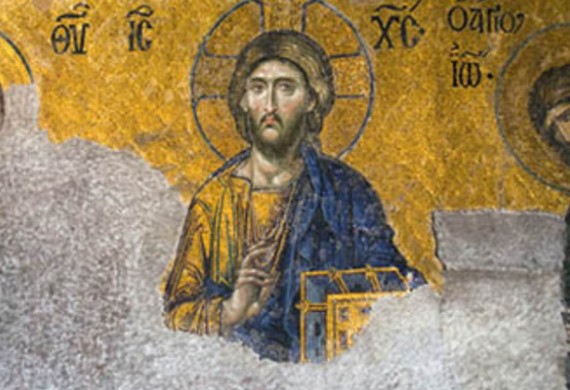A True member of the church
A true member of the Church and a real Christian is the person who has the following attributes.
First, he remains within the Church, without leaving it through atheism or heresy. He is not cut off from this living organism and does not participate in heretical sects. This means that he accepts the faith confessed in the Symbol of Faith absolutely, that he participates in the sacraments of the Church, is sanctified by them and practices ascesis in his personal life so that he will keep God’s commandments. He feels that he remains within the Church in order to be saved rather than to save, because the Church does not need saviours.
Second, he feels that he is a son of God, that is, he has a father and is not an orphan. His great Father is God. Yet, the clergy are also fathers, because they are the type and place of Christ’s presence. Hence, a real member of the Church is obedient to the bishops, the clergy and has a spiritual father, who guides him in his spiritual life. Of course, he also accepts the teachings of the Holy Fathers of the Church and tries to imitate their life, that is to say, their ascetic practice and witness.
Third, he feels that he belongs to a family, and, therefore, has spiritual brothers and sisters, He is not alone within the Church. This clearly means that he loves his brothers and sisters. He does not judge them, regardless of the mistakes they may have made and he does not condemn them. He is tolerant and shows forbearance towards their chance weaknesses. In addition, he shows his love in a variety of ways. He participates in their pain and in their joy. The happiness of other people is his own happiness, their sorrow is his own sorrow, their love is a fellowship of love and their faith a unity of faith. He should that everything is in common. He should feel that the Church is a family, just as the first Christians felt her to be, according to the description in the Acts of the Apostles (Acts :41-47). If he tries to keep God’s law, but does not have love, he is not a real Christian; he is a sick member of the Church.
Fourth, in the instance of sin, he follows a therapeutic course of treatment. Man is changeable. This means that he alters and is wounded throughout his life. In consequence, he sins. The Holy Scriptures say, “Who can become clear from filth? But no one, even if his life on earth is only for a day” (Job 14:4-5 Septuagint). St. John the Evangelist writes, “If we say we have no sin, we deceive ourselves and the truth is not in us” (I John 1:8).
Sins are not guilty acts or simple rejections of the law; they are first and foremost wounds of sicknesses. The sinner is spiritually sick. Consequently, sin should be encountered within a therapeutic and healing framework. The priest is a healer or doctor, who practices this function in the name of the Great Physician, Christ. He cleans and dresses the wounds, intervenes surgically, if necessary, and in general, heals the wounds. Within this framework, we should look at repentance, confession and the orders of the spiritual father, ie. what is known as penance. We must repent. We must really feel our fault and our illness, we should want to be cured, and resort to the therapist [ie. our spiritual father or confessor] to disclose our illness and reveal all hidden and concealed points of the sickness. We will then follow the therapeutic advice of the spiritual doctor with zeal ad resolve. The Church has the sacrament of repentance and of confession…
From all of this we realize that Baptism alone is not enough; one must also live in accordance with God’s commandments in order to become a true member of the Church. If a Christian happens to fall ill, there is a special method through which he will gain his health again.
An excerpt from Metropolitan Hierotheos Nafpaktos, Entering the Orthodox Church, (trans. Marina Mary Robb), Birth of the Theotokos Monastery (2004), pp. 98-101.
A True member of the church

